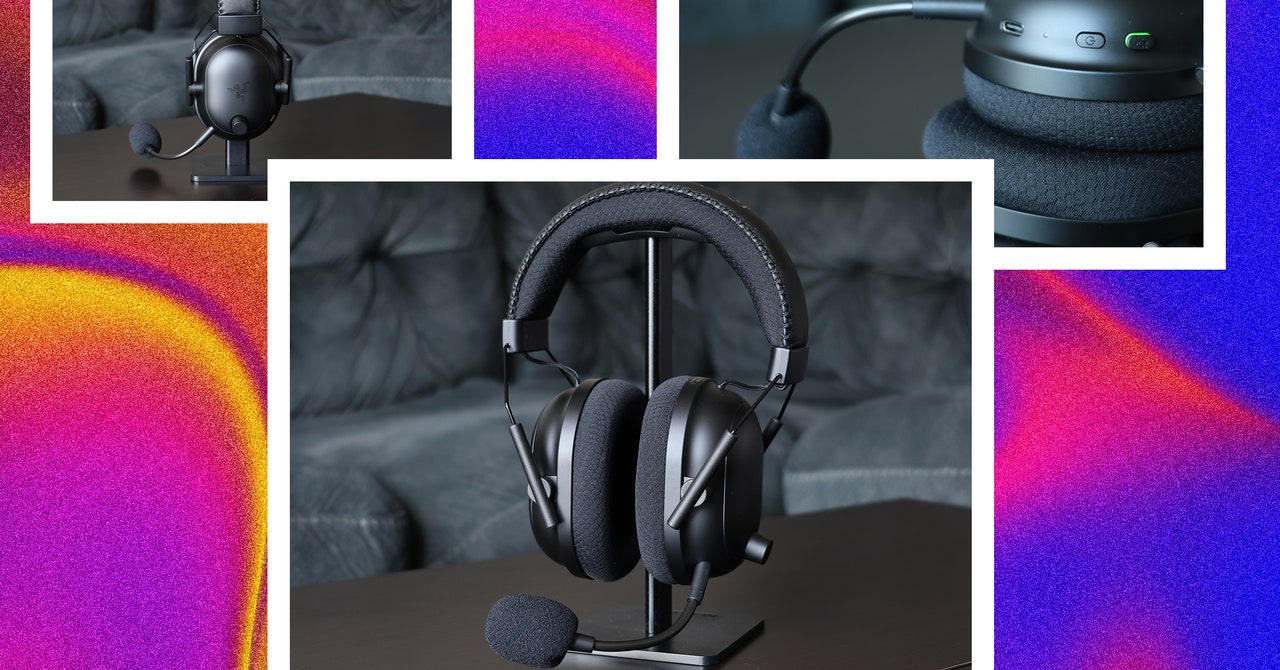Similarly, the BlackShark V2 Pro feels like you could pick it up 10 to 20 years from now and still think âOh yeah, this is cool.â The angled wire rods extend down to thicker tubes housing a rotating hinge, with the ear cups set between them. It gives the headset a professional, yet fashionable aesthetic that I vibe with.
For reasons I canât quite explain, the fact that the volume knob sticks out when it really doesnât have to is what makes me love it. Other headset manufacturers spend so much effort on minimal designs with low-profile buttons and dialsâhaving this one sticking out so prominently makes it feel attractive just by virtue of its boldness.
Convenience and Comfort
It doesnât hurt that the volume knob is convenient and thoughtfully designed. Itâs an infinite dial, so you can rotate it as far as you want in either direction, with very subtle clicks to provide feedback on how far youâre turning it. In lieu of a physical stopping point, an audio cue plays when you reach either the maximum or minimum volume.
Photograph: Eric Ravenscraft
The audio quality is solid, but itâs the bass tones that really stand out. Out of the box, the lower tones are emphasized, which can be handy in some competitive games to help you hear enemy footsteps and other important sound cues. In my opinion, itâs a little too bass-heavy for general media listening, but itâs great for gaming.
While the aesthetic design might remind me of ’90s elementary school headphones, wearing the headphones does not. The foam on the ear cups is soft and comfortable, and they donât put much pressure on the sides of my head. The inner cavity is spacious, so I never feel like my ears are getting squished.
Theyâre so comfortable that I was able to wear them for hours while listening to music as I worked. Or, more often, when I put music on for five minutes, paused it, then forgot I was wearing the headphones for two hours.
And the BlackShark V2 Pro can run for a lot of hours. It might not have the longest battery life weâve ever seen, but it still beats most gaming headsets weâve tested. Razer rates its battery life at 70 hours on a full charge, though in my testing it usually lasted a couple hours longer than that.
The headset charges via a USB-C port on the left ear cup. In the box, Razer has included a USB-C to USB-A cable for charging, as well as an additional USB-A extension cable. I appreciate this little touch, because it means I donât have to choose between having a charging cable thatâs long enough or having a ton of excess cable cluttering up my desk.

